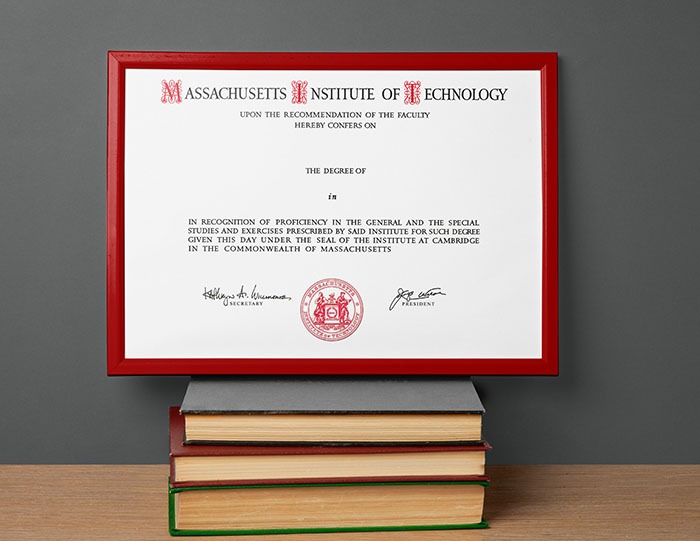Exploring the World of Fake Diplomas
Fake diplomas have become an increasingly curious topic in recent years. While genuine academic credentials reflect hard work and achievement, fake diplomas occupy a different space that blends creativity, motivation, humor, and practicality. For some, they serve as novelty items or temporary replacements; for others, they act as symbolic reminders of future goals. Understanding why they’ve grown in popularity helps distinguish harmless uses from misuse and highlights how fake diplomas have evolved into a unique niche market.


What Is a Fake Diploma?
A fake diploma is a professionally printed document that resembles an authentic degree or certificate. It often includes realistic details such as embossed seals, signatures, watermarks, and formal layouts to mimic the look and feel of an official credential.
People buy fake diplomas for novelty, display, or theatrical purposes, but using a fake diploma to misrepresent qualifications can have serious legal and ethical consequences. Fake diplomas generally fall into three main categories:
Novelty Diplomas: Created purely for entertainment or display purposes.
Replica Diplomas: Imitations of real degrees designed to replace lost originals or serve as stand-ins until official copies arrive.
Customized Diplomas: Made to reflect personal achievements, such as a self-taught skill or milestone not covered by traditional education.
These documents are crafted using high-quality paper, advanced printing techniques, and authentic-looking designs, making them visually indistinguishable from genuine certificates when used appropriately.
Why People Seek Fake Diplomas?
There are several motivations behind why people purchase fake diplomas, many of which are not rooted in deceit.
Motivation and Morale:
For individuals striving toward a degree or career milestone, a fake diploma can serve as motivation. Displaying a mock version of the goal ahead can provide a psychological boost and a daily reminder to stay focused.
Humor and Gifting:
Fake diplomas make for hilarious gag gifts. Giving someone a “Doctorate in Coffee Consumption” or a “Master of Procrastination” is a playful way to celebrate their quirks, hobbies, or sense of humor. They work well for birthdays, office parties, or any occasion where a laugh is guaranteed, and they can even double as fun décor for a workspace or home.
Temporary or Replacement Needs:
Graduates sometimes misplace their original diplomas or face delays in receiving official documents. A realistic replica can be a temporary solution, letting them display their achievements or meet job requirements while waiting for the official diploma. It provides reassurance and ensures no opportunities are missed.
Décor and Display:
Many professionals like to display diplomas in their offices, and fake diplomas can complement real credentials. They help create visual balance, fill empty wall space, or add an academic touch to a workspace, making the environment more polished and professional.
Fundamental vs. Fake Diplomas: Key Differences
Although high-quality replicas can appear authentic, closer examination reveals key differences between real and fake diplomas. Knowing these distinctions helps buyers identify genuine credentials and ensures replicas are used appropriately and responsibly.
Paper Quality: Genuine diplomas are printed on specialized, heavyweight paper with unique textures.
Seals and Stamps: Real diplomas feature embossed or foil seals that are difficult to reproduce.
Signatures: Authentic documents include verified signatures from authorized university officials.
Fonts and Layouts: Each institution uses specific typography and spacing styles that are challenging to duplicate exactly.
Serial Numbers and Verification: Real diplomas often have serial codes linked to a university database—something fake ones do not.
These details matter if the goal is to create a replica for novelty or display without misleading others.
The Legality and Ethical Boundaries
Owning or buying a fake diploma is not inherently illegal. The key factor is intent. Using a replica as decoration, a personal motivator, or a humorous gift is legal in most countries. However, presenting it as a genuine qualification for a job, academic program, or government documentation is considered fraud and can carry serious legal consequences. Laws vary by country:
In the United States, possessing a fake diploma is legal, but using it deceptively can lead to fines or imprisonment.
Similar rules apply in the United Kingdom and Canada. Novelty and replica diplomas are acceptable for private or decorative use but illegal for professional misrepresentation.
Ethically, fake diplomas should be seen as symbolic items. They are not replacements for real education but serve as playful, commemorative, or decorative creations.
Online Market for Fake Diplomas
Thanks to the internet, ordering replica diplomas has never been easier. Many websites now specialise in novelty certificates, replica diplomas, and custom document designs. Reputable sellers clearly label their products as novelty or replacement items and emphasize that they are not intended for fraudulent use.
When purchasing, it’s essential to:
Choose a site with transparent product descriptions and sample images.
Read customer reviews to assess quality and reliability.
Avoid sites that claim their diplomas are “real” or “accredited.”
Look for secure payment options and clear return policies.
Reliable providers focus on the authenticity of design, not the deception of purpose.
Risks and Consequences of Misuse
While fake diplomas can have harmless uses, misuse carries serious risks. Presenting a fake diploma as genuine can result in:
Legal trouble — including fraud charges or criminal prosecution.
Job loss — if an employer discovers falsified credentials.
Reputation damage — once trust is broken, rebuilding credibility becomes difficult.
These risks underline why responsible use is critical. The intention behind owning a fake diploma determines whether it’s seen as creative expression or unethical behavior.
Collecting Fake Diplomas as a Hobby
Collecting fake diplomas has become a niche hobby for some enthusiasts. Many enjoy building themed collections, such as diplomas from fictional universities or amusing degree titles. Others use them to decorate home offices, game rooms, or libraries.
Each piece tells a story—celebrating a dream career, showcasing personal humor, or symbolizing lifelong learning beyond the classroom. For collectors, fake diplomas are about imagination and individuality rather than deception.
Responsible Use: Keeping It Fun and Harmless
Responsible use of fake diplomas revolves around honesty and transparency. When treated as art, humor, or décor, they can entertain, inspire, or motivate without misleading anyone. Here are a few safe and creative ways to use them:
As wall art in a study or workspace
As a prop for theatre, film, or photo shoots
As novelty gifts for friends and family
As a placeholder while waiting for an official diploma
Fraud diplomas can be enjoyed responsibly by keeping their purpose lighthearted and transparent. Fake diplomas will never replace genuine academic credentials, but they have found a small yet meaningful place in modern culture.
From motivational props to personalized décor, they celebrate creativity, humor, and individuality. The key lies in understanding the line between symbolic use and deception. When purchased responsibly and used ethically, fake diplomas can celebrate ambition, humor, and imagination without crossing into dishonesty.
FAQs
Are fake diplomas legal to own?
Yes, owning or displaying a fake diploma for personal or novelty use is legal. It becomes illegal only when used to deceive employers, institutions, or government bodies.
Can I buy a fake diploma online safely?
Yes, as long as you purchase from reputable novelty or replica providers that clearly state their products are not for fraudulent use.
What are fake diplomas made of?
High-quality fake diplomas use premium parchment paper, embossed seals, and advanced printing to resemble real university documents.
Can fake diplomas be used for jobs?
No. Using a fake diploma to obtain employment is considered fraud and can have serious legal consequences.
What’s the best way to use a fake diploma?
You can use it as décor, a motivational symbol, or a funny gift—never as proof of education or qualifications.
